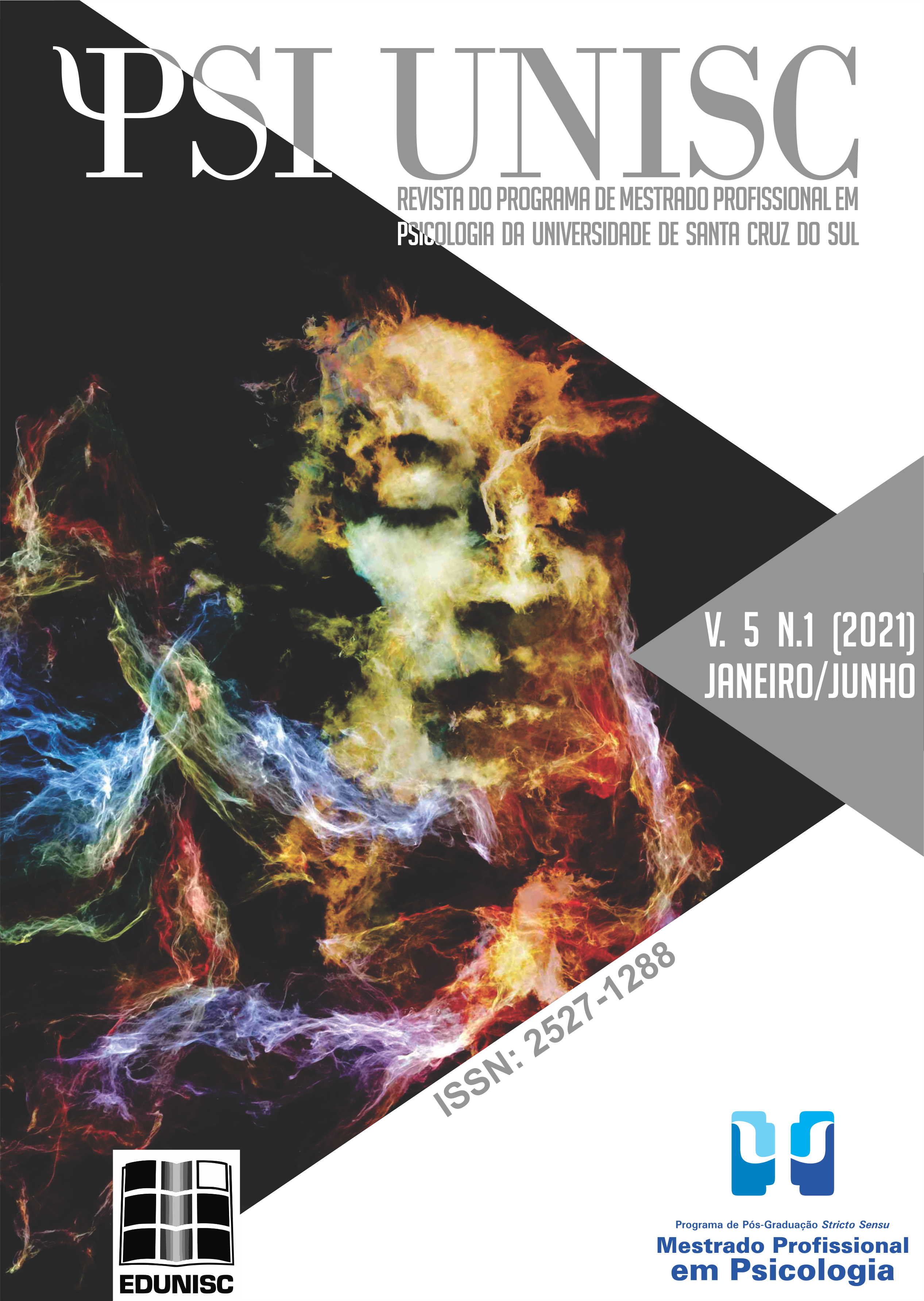Hierarchy of value: current organization of human value in young university students
DOI:
https://doi.org/10.17058/psiunisc.v5i1.15628Keywords:
Values, College students, Hierarchy, Schwartz, Teacher.Abstract
This study has as a goal to investigate what values dominate and how they are ranked between the college students; analyze how these values influence the daily behavior of these people and how they determinate the teaching-learning practices and the relationship of formation of values between teachers and students. It also has its execution methodology structured by a quantitative, qualitative and descriptive research approach, they analyze the results through empiric reality correlation with a theory that supports the study. A field research was realized with one hundred and forty college students, through an application of a quiz based on Human Values Theory by Schwartz (1992). The results demonstrate that there is a conflict on ranked values as more important by these students. On the one hand, there is benevolence and the student, they are self-transcending values, by the other hand the hedonism, it is an intrinsic value, facing the changing and opening. Another point to be detached is that students consider this values teaching must be done predominantly by the family. Nevertheless, when evoked about values taught by their teachers, they mention conservative values. Conclude that there is a value choc between those who are taught by family and those who are taught by teachers, it may be noticed trough the values rank.This study has as a goal to investigate what values dominate and how they are ranked between the college students; analyze how these values influence the daily behavior of these people and how they determinate the teaching-learning practices and the relationship of formation of values between teachers and students. It also has its execution methodology structured by a quantitative, qualitative and descriptive research approach, they analyze the results through empiric reality correlation with a theory that supports the study. A field research was realized with one hundred and forty college students, through an application of a quiz based on Human Values Theory by Schwartz (1992). The results demonstrate that there is a conflict on ranked values as more important by these students. On the one hand, there is benevolence and the student, they are self-transcending values, by the other hand the hedonism, it is an intrinsic value, facing the changing and opening. Another point to be detached is that students consider this values teaching must be done predominantly by the family. Nevertheless, when evoked about values taught by their teachers, they mention conservative values. Conclude that there is a value choc between those who are taught by family and those who are taught by teachers, it may be noticed trough the values rank.Downloads
References
Almeida, C. A. (2015). A cabeça do brasileiro. Rio de Janeiro: Record.
Cunningham, L. S., & Reich, J. J. (2002). Culture and Values: A Survey of the Western Humanities. Stamford: Cengage Learning.
Flament, C., & Rouquette, M.-L. (2003). Anatomie des idées ordinaires. Commentétudier les représentations sociales. Paris: Armand Colin.
Gouveia, V. V. (2013). Teoria funcionalista dos valores humanos: fundamentos, aplicações e perspectivas. São Paulo: Casa do Psicólogo.
Lima, T. J. S. (2012). Modelos de valores de Schwartz e Gouveia: Comparando conteúdo, estrutura e poder preditivo (Dissertação de Mestrado). Universidade Federal da Paraíba, João Pessoa, Brasil. Recuperado de https://repositorio.ufpb.br/jspui/handle/tede/6903
Menezes, I., Costa, M. E., & Campos, B. P. (1989). Valores de estudantes universitários. Cadernos de consulta psicológica, 5, 53-68. Recuperado de https://sigarra.up.pt/fpceup/pt/pub_geral.pub_view?pi_pub_base_id=81714
Porto, J. B., Tamayo, A. (2007). Estrutura dos valores pessoais: a relação entre valores gerais e laborais. Psicologia: Teoria e Pesquisa, 23(1), 63-70. doi: 10.1590/S0102-37722007000100008
La Taille, Y. (2009), Formação ética: do tédio ao respeito de si. São Paulo: Artmed.
Rokeach, M. (1973). The nature of human values. New York: Free press.
Rokeach, M. (1979). The two-value model of political ideology and British politics. British Psychological Society, 18(2), 169-172. doi: 10.1111/j.2044-8260.1979.tb00321.x
Ros, M., Schwartz, S. H. (1995). Jerarquia de valores en paises de la Europa occidental: una comparacion transcultural. Reis, (69), 69-88. doi: 10.2307/40183777
Schwartz, S. H. (1992). Universals in the context and structure of values: theoretical advances and empirical tests in 20 countries. In M. Zanna (Org.), Advances in experimental social psychology (vol. 25, pp. 1-65). Orlando: Academic Press. doi: 10.1016/S0065-2601(08)60281-6
Schwartz, S. H. (1994). Are there universal aspects in the structure and contents of human values? Journal of Social Issues, 50, 19-45. doi: 10.1111/j.1540-4560.1994.tb01196.x
Schwartz, S. H. (2003). A proposal for measuring value orientations across nations. Questionnaire package of the european social survey, 259(290), 261.
Simmel, G. (2005). As grandes cidades e a vida do espírito (1903). Mana, 11(2), 577-591. doi: 10.1590/S0104-93132005000200010
Spadoni, L. (2016). Psicologia realmente aplicada ao direito. São Paulo: LTr8.
Verges, P. (1994). Approche du noyau central: propriétés quantitatives et structurales. In C. Guimelli, (Org.), Structures et transformations des représentations sociales (pp. 233-253). Lausanne: Délachaux et Niestlé. Recuperado de https://www.scielo.br/pdf/prc/v16n3/v16n3a03.pdf
Downloads
Published
How to Cite
Issue
Section
License
The submission of originals to this journal implies the transfer, by the authors, of the printed and digital publication rights. The copyrights for the published articles are those of the author, with periodical rights on the first publication. Authors may only use the same results in other publications clearly indicating this journal as the medium of the original publication. Because we are an open access journal, we allow free use of articles in educational and scientific applications provided the source is cited under the Creative Commons CC-BY license.




